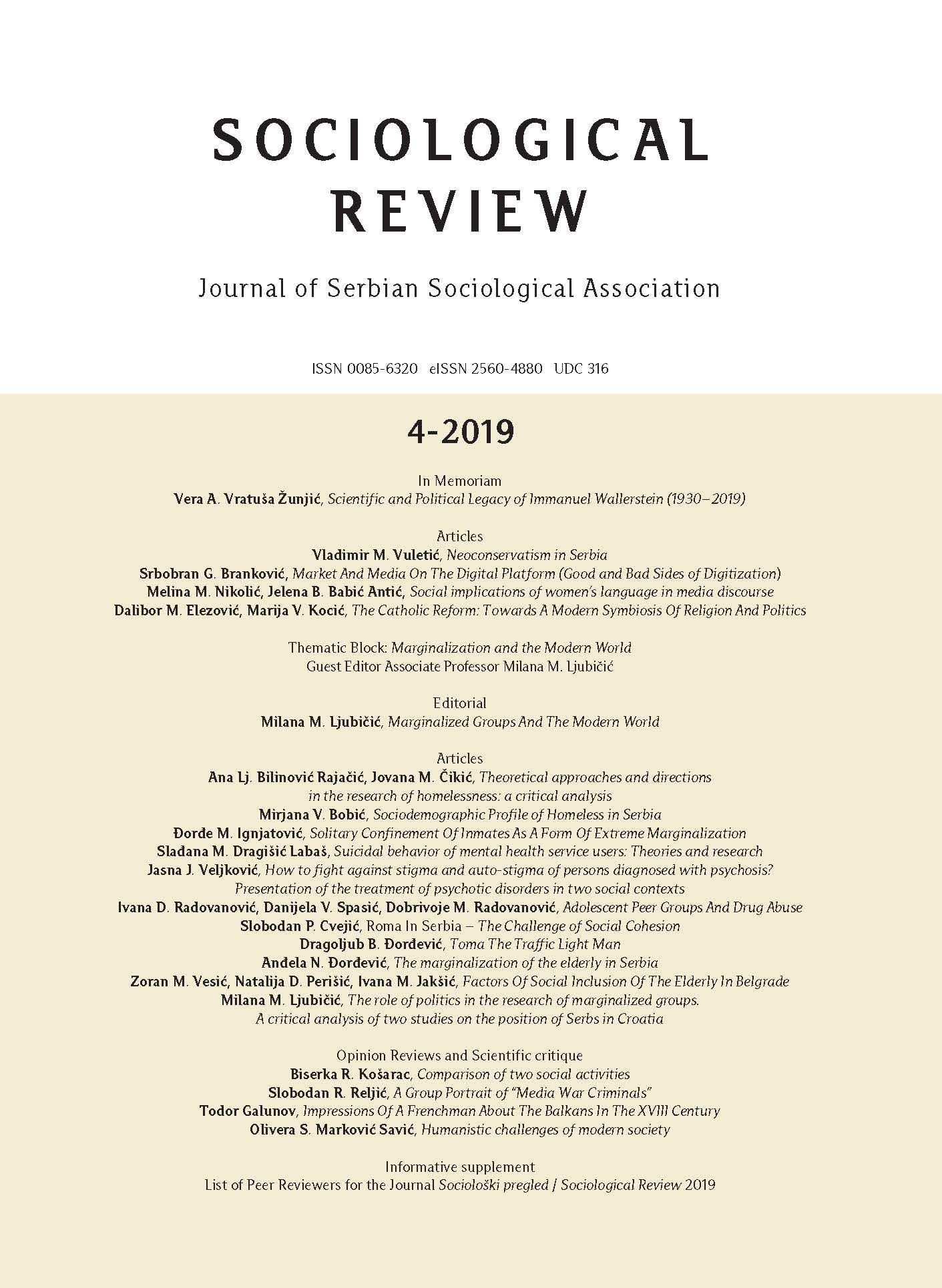How to fight against stigma and auto-stigma of persons diagnosed with psychosis? Presentation of the treatment of psychotic disorders in two social contexts
How to fight against stigma and auto-stigma of persons diagnosed with psychosis? Presentation of the treatment of psychotic disorders in two social contexts
Author(s): Jasna J. VeljkovićSubject(s): Social Sciences, Sociology, Health and medicine and law
Published by: Српско социолошко друштво
Keywords: psychodrama;role;mental illness;stigma;auto – stigmа
Summary/Abstract: In this paper, we discuss the possibility of applying the psychodrama method in dealing with the stigmatized group of people with psychotic disorders. Despite many advances in pharmacy and psychotherapy, it is true that in the Western world there is still a marked stigma and discrimination against psychiatric patients. Our research question was whether the outcome could be different if the treatment of patients was performed in a manner different from that which is common in Western psychiatric practice? To answer this question, we describe the treatment and treatment outcomes for psychosis patients in Africa, and then outline how to reduce stigma and auto-stigma through psychodrama. The theoretical basis for this is Moreno’s theory of roles as well as various theoretical views on the possibilities of the psychotherapy of psychoses. This “step-by-step” treatment has been shown to lead to learning new and more appropriate patterns of behavior, acquiring previously unpracticed social roles, and ultimately to increasing self-esteem, much like African psychotherapy. The final outcome of both approaches is similar to each other by the rituals they use and the permissions they give to patients to be authentic in their illness – without imposing “normality” from expert positions, low relapse rates, high social functionality and low self-stigma. It can be concluded that by considering the importance of social-psychological, sociological as well as socio-cultural aspects of mental disorders, it can significantly contribute to reducing discrimination and stigmatization of mentally ill people.
Journal: Социолошки преглед
- Issue Year: 53/2019
- Issue No: 4
- Page Range: 1553-1583
- Page Count: 31
- Language: English, Serbian

